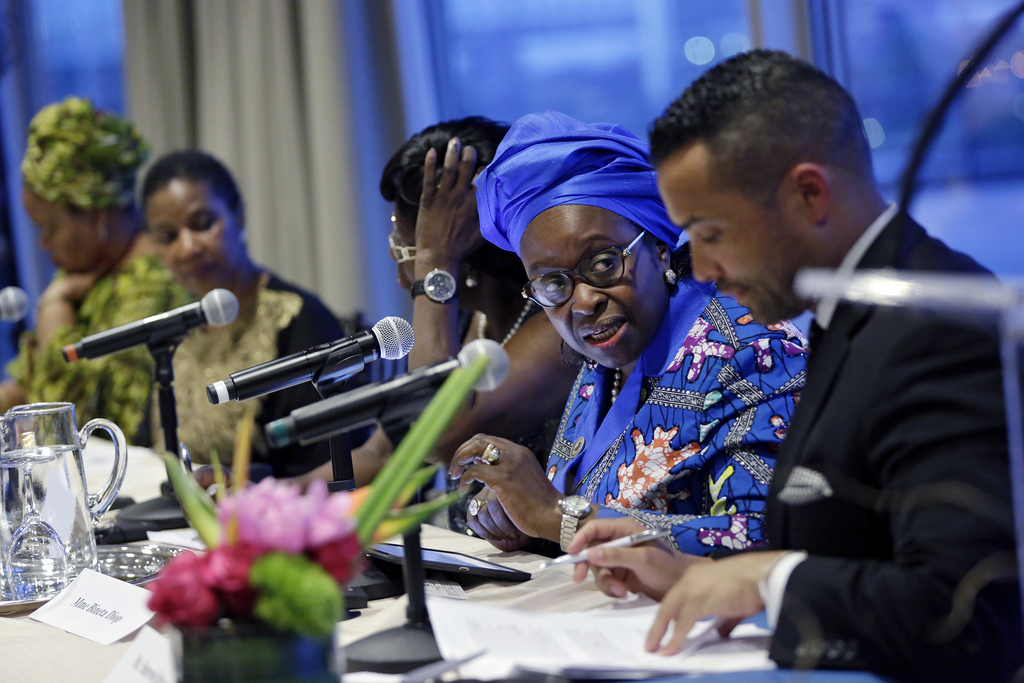“Working to protect minority communities”
September 6th, 2017 Recently, Commonwealth Correspondent Omeye Kenechukwu wrote about community identity in the south of Nigeria. Here, Folmi Yohanna, 27, a Commonwealth Correspondent from Bauchi State, examines the sense of inclusion for communities in northern Nigeria.
Recently, Commonwealth Correspondent Omeye Kenechukwu wrote about community identity in the south of Nigeria. Here, Folmi Yohanna, 27, a Commonwealth Correspondent from Bauchi State, examines the sense of inclusion for communities in northern Nigeria.
Minority communities in almost any region tend to be targets of discrimination, exclusion and sometimes violence. Often, the poorest communities are minority communities.
In a bid to protect the rights of minorities, the United Nations adopted the Declaration on the Rights of Persons Belonging to National or Ethnic, Religious and Linguistics Minorities in its 92nd plenary meeting in December 1992.
The question that comes to mind is how many countries have incorporated and truly implemented this declaration by the UN? Are there cases of the state institutions charged with the responsibility of protecting the rights of minorities, in some cases perpetrating the violation of such rights?
A report titled “Marginalised Minorities in Development Programming – A UNDP Resource Guide and Toolkit” by Gay J. McDougall, a UN independent expert on minority issues and published in May 2010, pointed out that the dire situation of so many ethnic, religious or linguistics is often exacerbated by numerous and complex factors. She stated that discrimination and inequality circumscribe many aspects of their life opportunities such as unequal access to quality education. Racist notions in the wider community may limit their employment possibilities to the most low-waged and precarious option, and when their rights are violated recourse to institutions of justice is often a distant possibility for minority groups.
Let me examine the marginalisation of the minorities by the major tribes in northern Nigeria, using my community and ethnic group as an example.
I am someone from an ethnic minority in Bauchi State of Nigeria known as the “Zaar” aka “Sayawa” people. Writing from my experience and personal point of view, I believe that as an ethnic minority in the state, we often face discrimination. We are poorly represented in the political structure and decision making bodies, and as McDougall’s UNDP report stated, minorities consequently have little control over decisions that affect them. We rarely have a say over what affects us. In recent times, we are fortunate that the present Speaker House of Representative in the National Assembly happens to be “Zaar” by tribe, however he alone can not address all the issues bothering “Zaar” people.
McDougall’s report stated that it is common to see minorities lacking voice in shaping their own circumstances. They are often vulnerable to neglect. These communities are most likely to be at the back of the line for humanitarian assistance, if not totally forgotten.
This is not peculiar to “Zaar” people, who are Christians and ethnic minorities in the State, but is a shared experience with other minorities in the state and in northern Nigeria who share same minority status as that of “Zaar” people. In a 2014 National Conference the minorities in northern Nigeria under the aegis of Northern Minorities Rights Project issued a joint memorandum submitted by their representative. It alleged that the powerful elite in the region had systematically marginalised them over the years and documented the allegation in a 48-page presentation titled “Joint Memorandum to National Conference by the Northern Minorities Rights Projects, Conference of Autochthonous Ethnic Communities Development Association and Middle Belt Dialogue”.
More needs to be done to ensure the protection of minorities in every part of Nigeria, and indeed in the world. Majority groups must not impose their cultures, religious and customary practices on ethnic minorities. McDougall stated that addressing the development situation of minorities requires a holistic approach that recognises our rights as individuals and distinct minority communities.
Photo credit: UN Women Gallery African Women Leaders Network – Launch events at UNHQ via photopin (license)
………………………………………………………………………………………………………………
About me: I am legal practitioner practicing in Nigeria. I would love to be at the top of my career and hopefully, publish books. Also, be an agent of positive change in Nigeria and the world.
I love reading, practicing my profession, doing voluntary humanitarian activities, watching and playing of football and I love playing video games.
…………………………………………………………………………………………………………………
Opinions expressed in this article are those of the author and do not necessarily represent the views of the Commonwealth Youth Programme. Articles are published in a spirit of dialogue, respect and understanding. If you disagree, why not submit a response?
To learn more about becoming a Commonwealth Correspondent please visit: http://www.yourcommonwealth.org/submit-articles/
…………………………………………………………………………………………………………………




